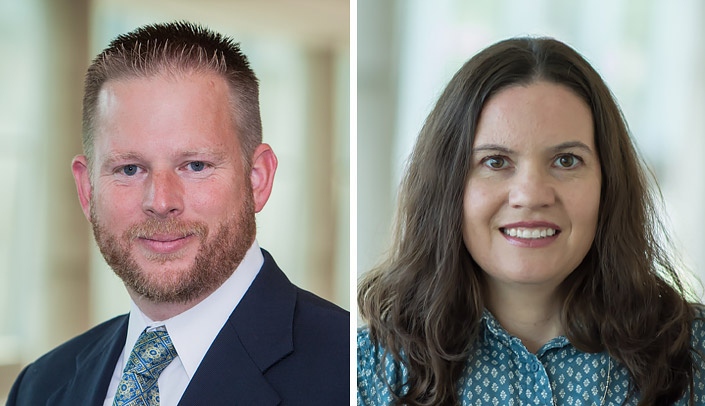Vaccines are the best way to prevent life-threatening diseases, and now it's easier for parents to get these critical shots for their adolescent-aged children.
All they have to do is visit their neighborhood Omaha pharmacy.
The University of Nebraska Medical Center’s College of Public Health and College of Pharmacy and the Douglas County Health Department have launched an information campaign to let parents know that vaccines can be given to children nine years old and above at the local pharmacy.
The campaign is part of a two-year, community-based research study in partnership with CVS, Walgreens and Hy-Vee pharmacies in the greater Omaha area. The goal is to increase awareness of this service, provide information about vaccines and improve the rate of vaccinated children in Douglas County. It is funded by a $300,000 anonymous donation through the University of Nebraska Foundation.
Many families are unaware that pharmacies are an option for vaccinating their children, said Shannon Maloney, Ph.D., assistant professor, health promotion, UNMC College of Public Health, and co-principal investigator of the study. "Most families live within five miles of a pharmacy that typically offer vaccines at hours convenient for working families – late evenings and weekends.
"The Healthy People 2020 initiative set a national target to reach at least 80 percent coverage of adolescents who are up-to-date on these three vaccines. In Nebraska, only 61 percent of females and 56 percent of males are up-to-date on their HPV vaccine. We have a vaccine that can protect against cancer. Let's help make Nebraska the healthiest state in the nation by ensuring all our children are protected against cancers associated with HPV."
Donald Klepser, Ph.D., associate professor of pharmacy practice and co-principal investigator, said adolescents are less likely to have regular (or annual) visits with their physician when compared to babies and preschoolers.
"One of the goals of this project is to increase adolescent vaccination rates by offering all of the recommended adolescent vaccines at the same time as the adolescent gets their annual flu shot. There is no need to make a special visit or separate appointment."
Over the years, vaccines have prevented countless cases of disease and saved millions of lives.
The three vaccines that adolescents need – diphtheria, tetanus and whooping cough or pertussis (Tdap), human papillomavirus (HPV) and meningococcal – can now be given together in one visit. A booster dose is needed for HPV and meningococcal at age 16. The vaccines are normally covered by health insurance.
All 11-12 year olds should get three shots: TDap, HPV vaccine and meningococcal. The vaccines protect adolescents against future illness and help protect younger children who haven't yet received their vaccinations. Although it is recommended that adolescents get their vaccines early, at ages 11-12, for the best protection – older teens should get these shots if they haven't already.
We are Nebraska Medicine and UNMC. Our mission is to lead the world in transforming lives to create a healthy future for all individuals and communities through premier educational programs, innovative research and extraordinary patient care.
Twitter | Facebook | Instagram | YouTube | Flickr
UNMC, DCHD working with Omaha pharmacies on vaccine campaign
- Written by Tom O'Connor
- Published Jan 4, 2019

Don Klepser, Ph.D., UNMC College of Pharmacy, and Shannon Maloney, Ph.D., UNMC College of Public Health, are co-principal investigators on the vaccine campaign in the greater Omaha area geared to adolescent-aged children.
Media Contact
Phil Rooney
Douglas County Health Department
(402) 444-6427 (office)
402) 669-1602 (cell)
phillip.rooney@douglascounty-ne.gov
Tom O'Connor
UNMC Public Relations
(402) 559-4690 (office)
(402) 650-7063 (cell)
toconnor@unmc.edu